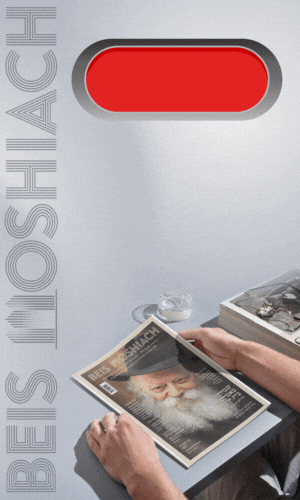What’s Next? Elections for Dummies
How does Israel’s electoral system work? And what does the future hold for the Israeli government when the smoke clears? Israeli political parties earn seats in the Knesset, Israel’s parliament, through proportional representation, which means that the number of seats a party receives in the Knesset is dependent on the percentage they receive in the popular vote • Full Story
The Yeshiva World
How does Israel’s electoral system work? And what does the future hold for the Israeli government when the smoke clears?
Israeli political parties earn seats in the Knesset, Israel’s parliament, through proportional representation, which means that the number of seats a party receives in the Knesset is dependent on the percentage they receive in the popular vote. The popular vote is national rather than regional, which means that all of Israel comprises one electoral unit.
Israelis vote for parties instead of individual Knesset candidates and each party forms its own list of Knesset candidates. The electoral threshold to enter the Knesset is 3.25%. Israel has multiple parties (30 parties in Tuesday’s elections) and no party in Israeli history has ever won a majority of seats in a national election, which means that a government is always formed through a coalition of at least 61 seats – a majority of the Knesset’s 120 seats.
Once all the votes are counted, the president of Israel, currently President Reuven Rivlin, meets with all the parties and asks who they recommend as prime minister. The president then invites the leader of the largest bloc to form a coalition.
With 95% of the vote counted, there may be slight changes, but it’s obvious at this point that neither Netanyahu’s right-wing bloc nor Benny Gantz’s left-wing bloc will be able to reach a coalition with 61 seats with their natural partners. Weeks of difficult coalition negotiations lie ahead, and even a final official vote count is probably still days away, with absentee ballots still to be counted.
Netanyahu’s right-wing bloc includes:
Likud: 32 seats
Shas: 9 seats
Yahadut HaTorah: 8 seats
Yamina: 7 seats
Gantz’s left-wing bloc includes:
Blue and White: 33 seats
Joint List (Arabs): 12 seats
Labor-Gesher: 6 seats
Democratic Camp: 5 seats
Right-wing bloc: 56 seats
Left-wing bloc: 55 seats.
Yisrael Beiteinu headed by Avigdor Liberman – who scored 8 seats – is an outlier since it’s a right-wing party but chose to run an extreme anti-Chareidi and anti-religious campaign and will not join Netanyahu together with the religious parties. However, he also will not join a coalition that includes Arab parties.
Blue and White also declared during the election campaign that they won’t form a coalition with Arab parties. And the Arab parties themselves have never been part of an Israeli coalition (although individual Arab politicians have served in the Cabinet). Since the Israeli government “occupies the West Bank,” the Arab parties prefer to sit in the opposition.
Some political commentators were saying that Netanyahu may try to induce a party or individual party members from the center or left to join the right-wing in forming a coalition, such as Labor-Gesher, which he tried to do following the April elections. However, Labor-Gesher Party chairman Amir Peretz announced on Wednesday that Netanyahu shouldn’t even bother calling him since he intends to keep his election promise not to sit in a coalition led by the current prime minister.
Due to these varying factors, the only option is a national-unity government with Blue and White and Likud ruling together. However, Blue and White repeatedly said during the election period that they want to form a national-unity government but they refuse to sit together with Netanyahu due to his pending indictments. On the other hand, Likud members said on Wednesday that they are remaining loyal to Netanyahu.
Netanyahu met with the leaders of his right-wing partners on Wednesday from the parties of Yahadus HaTorah, Shas, and Yamina and they agreed to form a right-wing bloc with a joint coalition negotiations team. Netanyahu then addressed the Likud, saying: “We’ve established a bloc of right-wing parties, and there will now be either a government headed by me or a dangerous government dependent on the Arab parties. We will make every effort to prevent this dangerous government.”
However, a Jerusalem Post report on Wednesday night said that Netanyahu is intending to meet with Blue and White to try to join a national unity government led by him. He will publicly invite all of Blue and White to form a national-unity government but he is hoping that Blue and White will split so he can form the coalition without Yair Lapid’s Yesh Atid.
Likud MKs said that Netanyahu may agree to rotate the position of prime minister with Benny Gantz if Netanyahu serves first. The Likud also stated that “Prime Minister Binyamin Netanyahu isn’t ruling out any Zionist party.”
It remains to be seen whether Gantz will stick to his claim that he won’t sit with Netanyahu in the same government when that seems to be his only option to be part of that government. It also remains to be seen whether Lapid’s Yesh Atid will be part of the coalition and what that will mean to the Yahadus HaTorah party, who have repeatedly said that they will never sit in the same government as Yair Lapid.
Another scenario that could occur if Netanyahu fails to form a coalition is that the Likud could appoint someone else as the party leader. Although Likud members are paying lip-service that Netanyahu is the Likud’s only candidate for prime minister, that could change if a coalition can’t be formed without him and the only option is a third round of elections. There are a number of top Likud members that could possibly fill the role such as Foreign Minister Yisrael Katz, Knesset Speaker Yuli Edelstein, Public Security Minister Gilad Erdan and Netanyahu’s nemesis, Gilad Sa’ar.
President Reuven Rivlin will begin meeting with party leaders on Sunday to determine who will receive the mandate to form the future coalition.
172
Join ChabadInfo's News Roundup and alerts for the HOTTEST Chabad news and updates!











































I think that if Netanyahu would have (or will) liberate a piece (approximately 10%) of Gaza after every time Hamas shoots rockets into Green line Israel then he would get a much stronger Brocha from the Rebbe Shlita to be able to serve another term as Prime Minister.